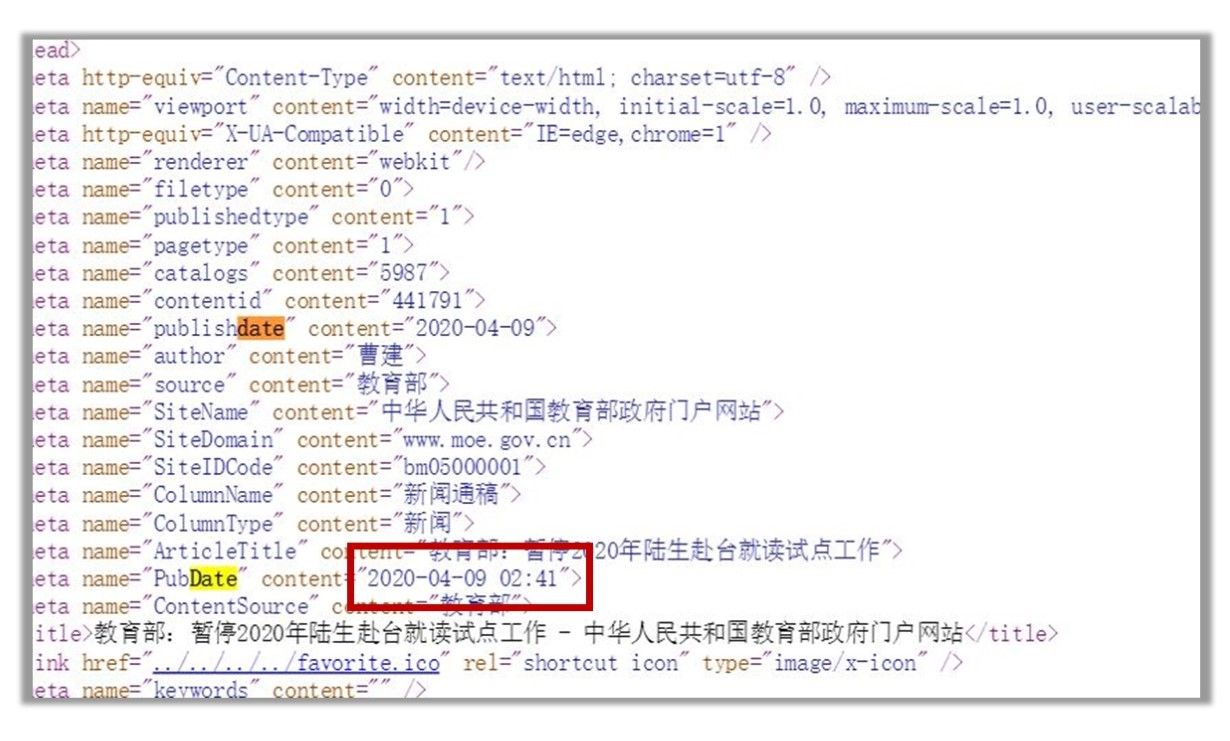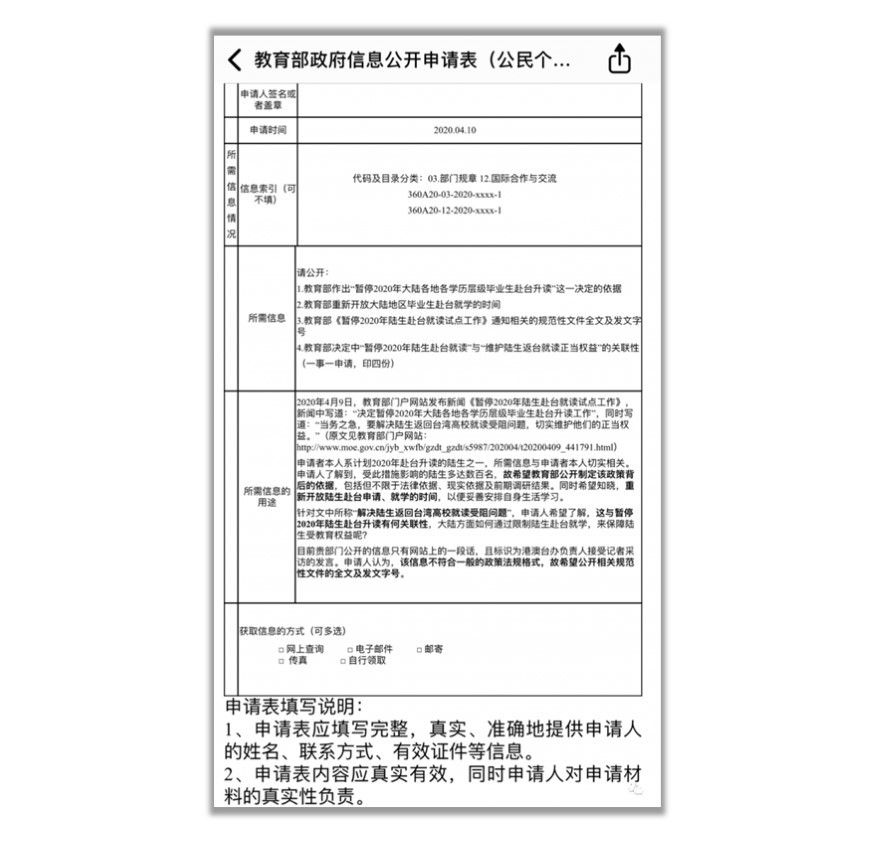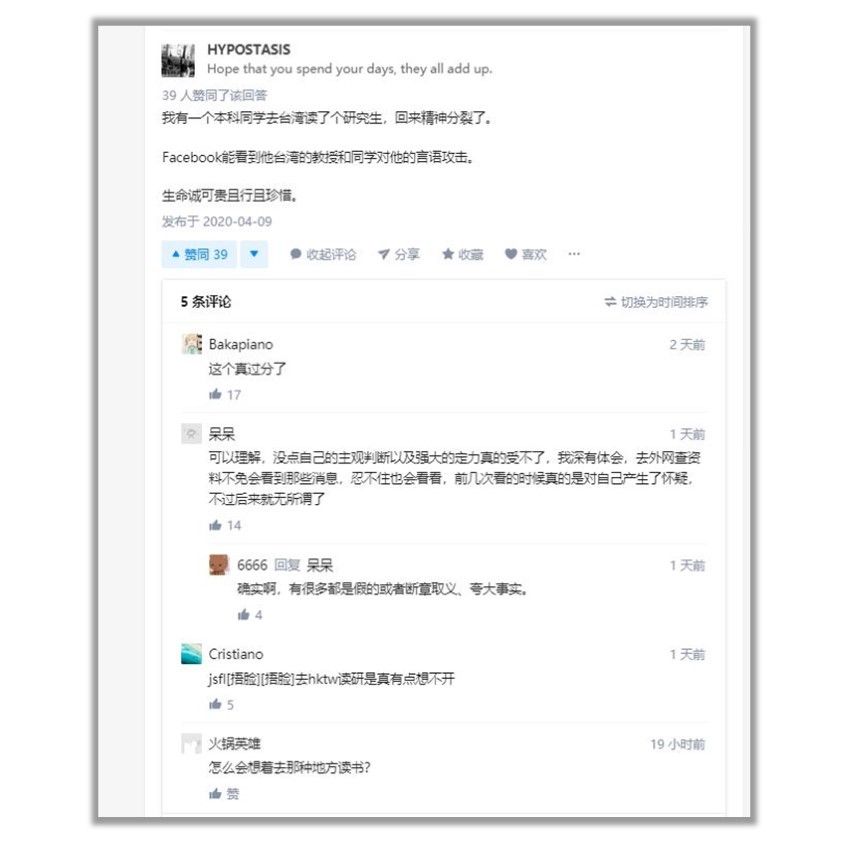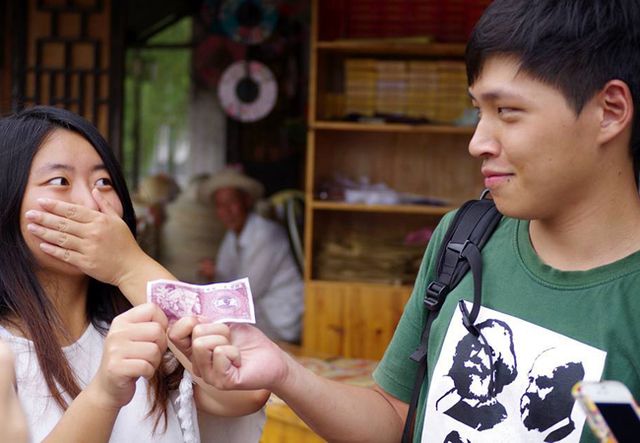Prospective mainland students: I am a student, not a political card | Mainland students’ study in Taiwan is suspended
In the past few months, many mainland students who plan to study in Taiwan have been paying attention to the admission information of Taiwanese universities, waiting for the relevant applications to reopen when the COVID-19 epidemic eases. Unexpectedly, in the early morning of April 9, the Ministry of Education’s official website issued a statement announcing:
Taking into account the current situation of the prevention and control of the new coronavirus pneumonia epidemic and cross-strait relations, it has been decided to suspend the continued study in Taiwan for graduates from all parts of the mainland at all academic levels in 2020.
Neither the 187-word article published by the Ministry of Education nor the interview with the head of the Hong Kong, Macao and Taiwan Affairs Office of the Ministry of Education by Xinhua News Agency stated whether "mainland students studying in Taiwan" will resume next year, nor what arrangements the Ministry of Education will make for this . Many people are worried that this will be a temporary and indefinite suspension , just like the suspension of free travel from the mainland to Taiwan. "Mainland students will soon become history," some people have already expressed such feelings.

The group most affected by this measure should be the group of "prospective mainland students". Many of them have already chosen their favorite schools in Taiwan, and have spent a lot of time and energy preparing for it, and have already made studying in Taiwan their life plan. Now the application deadlines for studying abroad in Hong Kong, Macau and overseas have been closed one after another, and the domestic postgraduate entrance examination has also ended long ago. This sudden information has undoubtedly thrown them out of their established life plans.
In 2011, the Taiwan government allowed mainland students to study in Taiwan at their own expense. Two years later, the number of provinces open to this policy increased from six to eight. Public data shows that in 2019, the number of mainland students applying to study in Taiwan reached 4,939. In the past three years, the total number of applications has been above 3,600.
Chen Xin is one of the students who plans to apply to study in Taiwan this year. She graduated from college in 2017 and had already planned her study plan, but now everything has been disrupted. The day after the Ministry of Education announced the relevant measures, Chen Xin submitted an information disclosure application to the Ministry of Education, requesting the disclosure of the basis for the "suspension", relevant normative documents and document numbers, the reopening time, and the contextual relevance of the Ministry of Education's notice.
In her application letter, Chen Xin mentioned that the number of people affected by this measure reached hundreds. We contacted Chen Xin to ask her about the relevant situation and to learn about the stories of prospective mainland students and mainland students, as well as their expectations.

Choices and concerns of prospective mainland students
Q: Can you tell us about your current situation? For example, what stage of study are you in?
A: I graduated from college in 2017 and have been working for a while. I learned about Taiwan's enrollment situation at the end of December 2019. A friend who studied in Taiwan recommended some departments and schools. I was quite interested at the time and hoped to continue my studies. There was no language barrier and the cost was low, so I planned to apply. In the past few months, due to the epidemic, the application has not been open, but we have been reading the enrollment brochures of various schools and preparing research materials. Then yesterday, I suddenly heard the news that the enrollment of mainland students was suspended.
Q: Why did you want to study in Taiwan? Cross-strait relations are more tense than ever before, and most public opinion is curious about the reasons for wanting to study in Taiwan.
A: In addition to the language and cost mentioned above, the department I personally want to study is related to the social science field (gender studies). The research level of this type of major in mainland China is not as good as that in Taiwan, and the department settings are not comprehensive enough. So from these points of view, studying in Taiwan is a more favorable environment. Although the two sides of the Taiwan Strait are now shouting at each other, this big international background is just a phenomenon we see on the surface. What kind of people you will meet in life and how your classmates and teachers interact with you are very different. It varies from person to person and is specific and subtle. To be honest, I am not worried about getting along with others. I have also met some Taiwanese friends before, and I think they are all very good people.
Q: How do you understand this policy? What are you most worried about at the moment?
A: I think it is very similar to the previous policy of suspending independent travel. It was sudden, without formal red-letter documents, press conferences, or news interviews. In addition, they may not be able to resume (mainland students going to Taiwan and independent travel) for a while. What I am most worried about is that there will be no more mainland students in the future, and the educational exchanges between the two sides of the strait will be completely terminated. And my own plans for the next year or two have been planned, but suddenly they can't be done. Should I find a new job? I will keep thinking about these questions.

Q: Can you tell us more about the preparations you have made?
A: Mainly preparing application materials, such as autobiography, research plan, etc. I have already written several copies.
Q: As far as you know, how many people are affected by this document? Have you had any exchanges with each other?
A: There should be quite a lot. Just looking at the number of mainland students admitted each year in the past two years, there were about 1,000 to 2,000. This year, I also joined some groups preparing to apply to study in Taiwan, and there are thousands of people in them. So we discuss these things in the groups, but not in private.
Q: When this document came out, was there a big reaction in the group?
A: The reactions were varied. Generally speaking, people were shocked and disappointed. The overall feeling was very low. There were all kinds of discussions. Some people felt very "resigned to their fate". With the current state of cross-strait relations and the epidemic, it was also helpless for mainland students to have such an outcome .

Practice as an individual actor
Q: I would like to ask, what is the significance of information disclosure to you or other students studying in Taiwan?
A: I thought of this channel at first because it is a legal and compliant way to communicate with the government. Our country has a "Government Information Disclosure Regulations", and we just need to follow it. No one will say that you are causing trouble or making trouble. It is just a relatively risk-free move. For me, asking about information disclosure immediately was what I could think of and do at that moment; for the Ministry of Education, I also hope that this is also a form of supervision and accountability, and I want to know what the considerations are for the formulation of a policy; for other mainland students, I actually don’t expect how satisfactory the results of this information disclosure will be , but I think this behavior is an action to pay attention to a policy that seems to be sudden and impulsive, supervise the government, and express reasonable demands.
Q: According to the Regulations on Government Information Disclosure, the Ministry of Education must respond to your question within 15 working days. If the response does not fully answer your question, what will happen next?
A: Administrative review (laughs). If the review is really messed up, review or prosecution is the only legal way . But going through the legal process is one thing, and I hope more people in society will pay attention to this matter, not just mainland students. If everyone pays more attention and is more active, then this matter should be taken seriously.
Q: So assuming the response is complete and the result is determined to be unchangeable, do you have a Plan B for your life in the near future?
A: I haven’t actually started thinking about Plan B yet. I just think… I will continue to work, so I can’t continue studying for the time being. But I don’t plan to study in other countries because the preparation cost is very high.
Q: What are your plans during this period of waiting?
A: Do you mean the fifteen working days of waiting for a reply? Or do you hope that more people will pay attention to it, and more mainland students can communicate and stay connected.
Q: In addition to this information disclosure requirement, what more specific plans and support do you expect the education departments on both sides of the Taiwan Strait to provide for the mainland students who are about to come to Taiwan?
A: I think the governments on both sides of the Taiwan Strait have always treated mainland students as a political card. When cross-strait relations are good, more places are opened and mainland students are treated better. When relations break down, the number of places is reduced and the treatment is particularly poor, such as restrictions on returning to Taiwan during the epidemic. My overall expectation is that in the future, both sides of the Taiwan Strait can treat mainland students as a group of students who want to learn, rather than playing them as political cards .

Follow-up:
On April 11, Qian Yongxiang and Initium Media editor-in-chief He Xinjie also talked about the policy of stopping the recruitment of mainland students during an online salon. "I think mainland students are a healthy force in mainland China. These young people are willing to come to Taiwan. Although they may not agree with the actual situation of Taiwanese society, they can at least see a different society. After seeing it, they can make judgments. They may not want to copy some shortcomings in society, but they may also see some advantages and hope to cultivate them in their own native society. It is such a great opportunity for mainland students to come to Taiwan to communicate and dialogue with us! So I think it is very important to create channels for increasing understanding and goodwill between the two sides of the Taiwan Strait."
Professor Qian Yongxiang said, "The suspension of mainland students coming to Taiwan is a huge loss. I feel more regretful than stopping cross-strait economic and trade exchanges!"
Compared with other social issues, the stories and voices about these "political cards" this year have received far less attention from the cross-strait society. The Taiwan Ministry of Education blocked mainland students from coming to Taiwan on the grounds of epidemic prevention and control, and the mainland Ministry of Education also banned mainland students from coming to Taiwan on the grounds of epidemic prevention and control. I don't know when the most basic requirement of "hoping to be treated as students who need to learn" can be safely implemented: when the environment is ignored, you and I will be overgrown with weeds.
Note: Chen Xin is a pseudonym

We are a non-profit independent media. We focus on public issues such as the environment, education, gender, mental health, etc., and provide the public with responsible documentary content.
Click the link to subscribe to our featured emails: https://jinshuju.net/f/sGicEk
Like my work? Don't forget to support and clap, let me know that you are with me on the road of creation. Keep this enthusiasm together!

- Author
- More